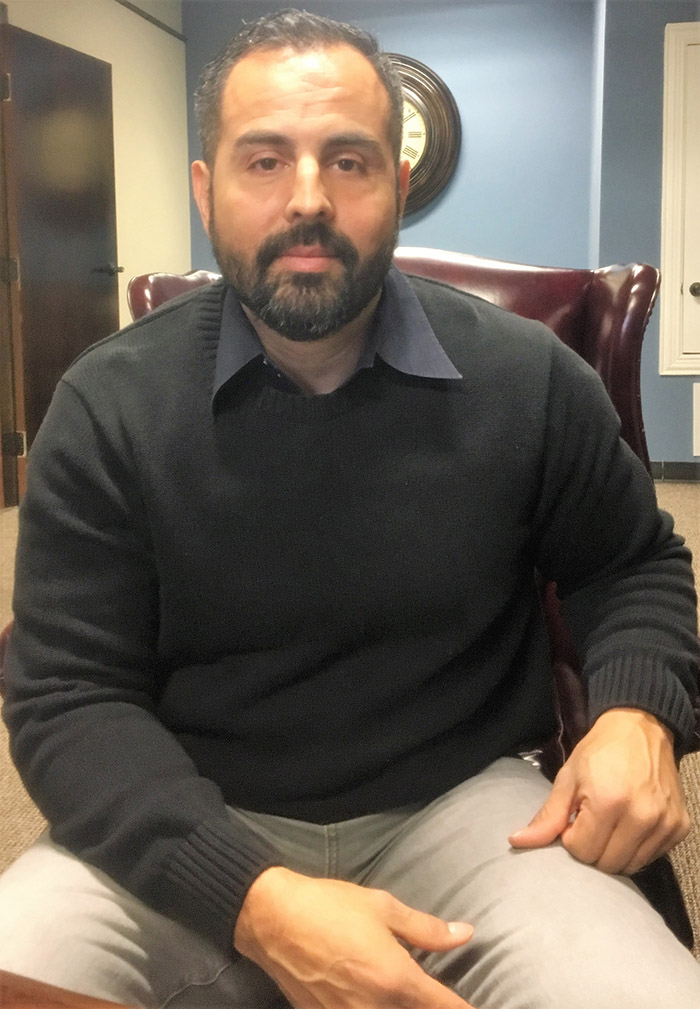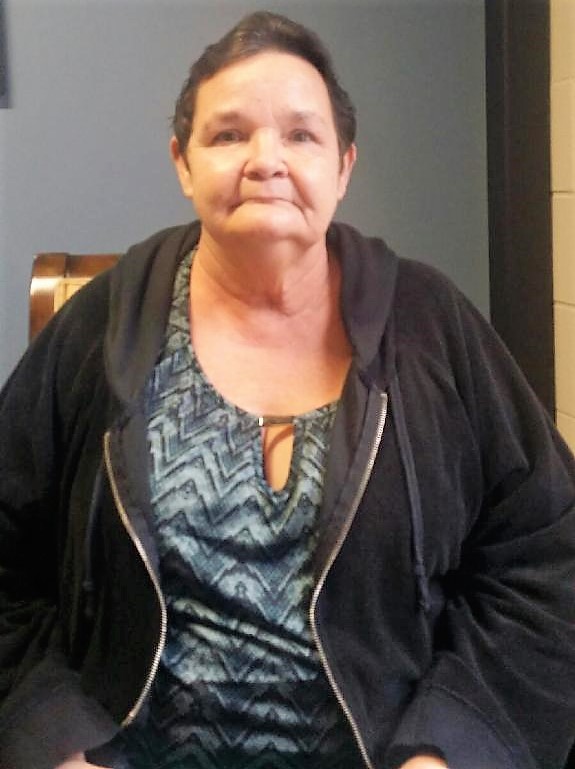Here is what our clients have to say…

Making the phone call was the best decision I made getting help to win my case. I was so disappointed being denied and I knew I needed help/ When the office of Daniel Gregory saw me I felt like all the pressure was relieved. I felt like I had a guardian angel protecting me. They helped me with everything I needed, and when the time came to go to court, I felt confident and at ease. When the decision was made and we won the case, it was the greatest news to finally be told that I was right!
- Paul Edward Acosta

I would like to thank Daniel Gregory and his wonderful staff very much for all you did for me regarding my disability benefits. They really worked hard on my case and made sure I was prepared for my hearing. May God continue blessing you for your devoted hard work for me and others!
- Enrique Padilla

Within the last four years I have been trying continuously to get disability benefits. The lawyer I worked with before Mr. Daniel Gregory got me no beneficial results over three years. Mr. Gregory worked diligent and quickly to get me the disability benefits I needed and deserved in less than a year. He made sure I had what I needed at the times needed and always made sure I was aware and on the same page. Thank you Mr. Gregory!
- Bonnie Farrington
Frequently Asked Questions
- How does Social Security define disability?
Social Security roughly defines disability as when someone has one or more medical conditions which prevent him/her from working. If you’re working full-time, or if your gross, pre-tax earnings are more than the amounts listed here, then you are not eligible for disability benefits. Special rules (known as the Medical-Vocational Guideline Rules, or “Grids”), apply to people of certain ages and with certain work and educational backgrounds.
- I have a medical condition that is listed by Social Security as a disabling condition. Does that mean I automatically qualify for benefits?
The Social Security Administration has published what are called “Listings”, which are impairments with VERY specific criteria. If you have been diagnosed with the disease or injury AND your condition meets the very specific criteria, then yes, you will be found disabled. However, it’s important to understand that there are still other criteria to being found disabled, such as having sufficient recent work, being off of work, following doctors orders, staying away from drugs and alcohol, etc. For instance, if you have Crohn’s disease (also known as ulcerative colitis or irritable bowel syndrome), you will NOT be found automatically disabled unless you also have certain documented complications (such as hospitalizations for obstructions of your bowels, anemia with certain blood levels, etc.). It’s important to remember that it’s not as easy as just having a diagnosis! It’s best to hire a local attorney who specializes in Social Security disability to help you with your claim.
- If my doctor says I’m disabled, does that mean I automatically qualify for benefits?
Not necessarily. Social Security must consider and analyze opinions from treating doctors, but at the end of the day Social Security does not allow treating doctors to control the outcome of your claim. What’s most important is that your physician write a letter that does MORE than just say that “my patient is fully and permanently disabled”. Social Security will flat-out ignore that letter. Instead, if your physician can fill out a questionnaire or write a letter indicating what your exact physical and/or mental limitations are (such as “my patient can only stand/walk 2 hours throughout an 8-hour day”, or “my patient cannot tolerate interaction with the public or co-workers”), then Social Security must consider that opinion. Overall, it’s best to hire an attorney and have your attorney design a questionnaire that is custom-tailored to your specific medical condition for your doctor to complete.
- What are the application and appeal stages? What is the average wait time? What are my chances of winning?
The chart below shows this information:
Stage
Wait Time
Average Win %
1- Initial Application 3-6 months 33% 2- Reconsideration Appeal 3-6 months 12% 3- Administrative law hearing 10-12 months 40-50%, but highly variable, depending on the particular judge 4- Appeals Council 12-16 months Remands (another chance at a hearing) occur 13% of the time; awards (where the Appeals Council outright grants the case) occur 1% of the time; the other 86% of cases are either dismissed or denied 5- Federal Court variable Remands (another chance at a hearing) occur 45% of the time; awards (where the federal court judge outright grants benefits) occur 2% of the time Each time the claim is denied through Step 4, then within 60 days an appeal must be filed with your local Social Security office. Also, at Step 3, administrative law hearings are held at a local Office of Disability Adjudication and Review (ODAR). In North Texas, there is one ODAR in Fort Worth, one in downtown Dallas, and one in North Dallas.
- How much are the attorney fees? How does the attorney get paid?
Attorney fees on all disability claims (whether for SSDI or SSI) are contingent upon winning the claim. That means that if you don’t win your claim, then there are ZERO attorney fees. If your claim is granted, then Social Security sets fees as the LESSER of 25% of past-due benefits or $6,000, while all monthly benefits go just to you. As an example, if we win your claim and get you $8,000 in past-due benefits, then the attorney fee would be $2,000, and you get $6,000, plus all monthly benefits go 100% to you. If we help you win your claim and get you $40,000 in past-due benefits, then the attorney fee is capped at $6,000, you would get $34,000, and all monthly benefits go 100% to you.
- What do you do besides social security law?
Nothing. I spend 100% of my time on disability law. If an attorney chooses to just dabble on the side in disability law, then that attorney will be left with very, very limited working knowledge and expertise of this difficult area of law. This kind of work is too complex and too important to hire someone that has limited expertise. This is why I dedicate all my time, all my effort, and all my work specifically to disability law.
- Will I meet with you before my hearing?
Yes, we will absolutely meet face-to-face. One important strategy for winning a disability claim is to develop a specific plan to win; after all, if you fail to plan, then you have planned to fail! I also want us to meet because we work together as a team to win. I also meet with you before your judge hearing so we can strategize for your hearing. We’ll go over how to answer tough questions from the judge, what parts of your condition to emphasize, to discuss the judge’s likes and dislikes, etc.
- How will you build my case?
The first step is to read the denial letter explanation page- there are clues in there that tell me what Social Security doctors think about your condition or why you were denied. Then we will discuss in great detail your medical conditions, your medical treatment, what type of work you’ve done, what current evidence you have that is good, and also identify what needs to be done. I will then develop a custom game plan to win your unique disability claim, tailored to your situation. I then ask you to execute your part, and I start doing the legal work to win your claim.
- How are you regarded among your peers?
I periodically am asked to speak at national conventions, where I teach other attorneys how to work Social Security Disability cases. In addition, I’ve also been asked to speak to and answer questions from local chapters of national advocacy groups, such as the National Multiple Sclerosis Society and the National Alliance on Mental Illness (NAMI).
- I am disabled and cannot work, but I have money in both a savings account and a retirement account, I also own my home, and my spouse works. Can I still qualify for disability benefits?
Yes you can. Social Security disability benefits are not paid based upon being in poverty. You can literally have unlimited amounts of savings and unlimited amounts of income from a working spouse and still be eligible. The only type of income which disqualifies you from receiving Social Security disability benefits is earned income that you receive from working.
- Can I receive workers’ compensation and Social Security disability benefits at the same time?
Yes, it is possible, though not in every situation. Social Security disability benefits are reduced by workers compensation benefits through a very complicated formula. The formula is based upon a calculation of your weekly workers compensation payment rate (minus certain excludable expenses, such as workers compensation attorney fees) and your “average current earnings” (a figure calculated by Social Security based on your Social Security-covered earnings history). An experienced Social Security disability attorney will know how to calculate the offset and advise you as to whether you are eligible to receive both Social Security disability and workers compensation benefits.
- I have many health problems, but none of them by itself is enough to make me disabled. Instead, it’s the combined effect of all of my health problems that causes me to be disabled. Can I still qualify for Social Security disability benefits?
Yes, you absolutely can. Social Security law requires that Social Security consider the combined effects of all of your health problems to determine how limited you are in your ability to work.
- I’m a disabled veteran, and I already receive disability benefits from the VA. Is it possible to draw both Social Security and Veterans disability benefits?
Yes, you absolutely can. If you receive service-connected VA disability compensation benefits, then you can still be eligible to receive Social Security disability benefits. In fact, the VA’s decision that you are disabled actually helps with your Social Security disability claim!